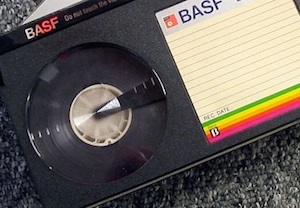
Today’s turn-of-the-knob logic might have made VCRs contraband 30 years ago.
Functionality, not technology, should guide how pre-Internet laws are applied in cyberspace. That’s the essential logic behind a U.S. supreme court ruling on Wednesday, that said that the same copyright rules that apply to cable TV systems also apply to Aereo, an online system for accessing broadcast television signals.
Aereo argued that since viewers were individually activating a tiny receiver and antenna, and selecting which channel to watch, it was more like a VCR than a cable TV system, which streams multiple channels continuously. A majority of the court disagreed, saying it is “a system that is for all practical purposes a traditional cable system”…
Given Aereo’s overwhelming likeness to the cable companies targeted by [1976 copyright legislation], this sole technological difference between Aereo and traditional cable companies does not make a critical difference here…the signals pursue their ordinary course of travel through the universe until today’s “turn of the knob”—a click on a website—activates machinery that intercepts and reroutes them to Aereo’s subscribers over the Internet. But this difference means nothing to the subscriber. It means nothing to the broadcaster.
The majority opinion, authored by justice Stephen Breyer, went to great pains to say it was a narrow ruling and brushed aside concerns that it would have profound and unintended consequences on new technology and services. In a dissent, justice Antonin Scalia called the underlying logic “crude” and warned that the court was gutting its 30-year old Betamax ruling that said because consumers individually decide how to use them, VCRs were legal products…
It will take years, perhaps decades, to determine which automated systems now in existence are governed by the traditional volitional-conduct test and which get the Aereo treatment. (And automated systems now in contemplation will have to take their chances.) The Court vows that its ruling will not affect cloud-storage providers and cable-television systems…but it cannot deliver on that promise given the imprecision of its result-driven rule.
I think Scalia is right. It might be a narrow ruling, but it establishes a broad standard that gives trolls and others in the predatory bar a blunt instrument to attack new products and businesses. We’ll be living – unhappily – with the consequences for a long time.
